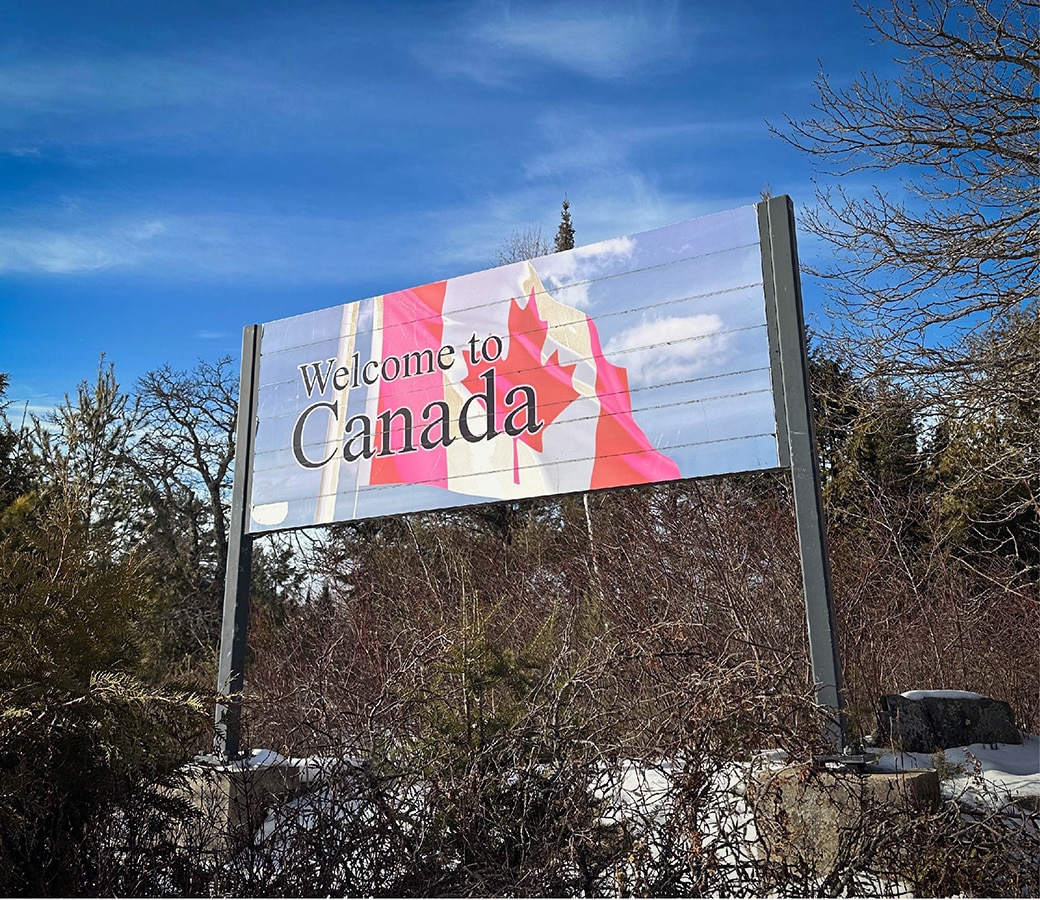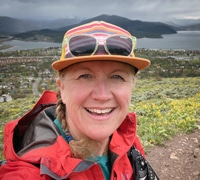
Canadian authorities have provided an update to the Remote Area Border Crossing Permit program (RABC). In a recent press release, they announced that the RABC program is no longer accepting applications and is being phased out. Instead, a new telephone reporting system will take the place of areas previously covered by the RABC program.
December 19, 2025, update via Canadian Border Service Agency (CBSA):
Effective Sept 14, 2026, the Remote Area Border Crossing (RABC) program will be discontinued. In an email sent to Quetico Superior Wilderness News, the CBSA communicated that starting that day, travellers entering Canada through remote areas listed below will need to report to the CBSA at a port of entry or through a designated telephone reporting site.
These regions include:
- Northwest Angle Area
- Pigeon River through to and including Lake of the Woods
- Canadian shore of Lake Superior (includes the Boundary Waters Canoe Area Wilderness-BWCAW)
- Sault Ste. Marie (upper lock system)
- Cockburn Island
The RABC program allowed visitors to enter Canada at remote locations, such as when traveling from the Boundary Waters into Quetico Provincial Park, without reporting to a staffed customs office. Authorities paused the program in September 2024 to conduct an administrative review and update procedures. At that time, they automatically renewed valid permits without requiring any action from permit holders.
Existing valid RABC permits were originally set to expire on December 31, 2025. In its latest email, the CBSA announced that it has extended these permits, which will now remain valid until 11:59 p.m. on September 13, 2026.
This extension allows anyone with a valid RABC permit to travel between the Boundary Waters Canoe Area and Quetico Provincial Park until the new phone reporting system takes effect. In addition, visitors will still need a Quetico park entry permit. Then, when returning to the United States, they’re required report to a Customs Border Protection officer for inspection at a port of entry, or a designated inspection location or use a smartphone reporting app.
New telephone reporting system
Authorities said they will determine the locations of the new telephone reporting sites in the coming months.
Telephone reporting sites in Canada are a physical location. It’s usually a marked dock, marina, or small port where travelers can stop their boat and make the required phone call to the CBSA. It’s unclear what this means for the BWCAW, so we’ve reached out to the CBSA for clarification.
Canadian authorities are building on a system already in place across the country. On their website, they communicated that, “This process ensures a consistent level of security and expectations of compliance for everyone. It is a measure that will also more closely align with how travellers report to U.S. Customs and Border Protection when entering the U.S. in remote areas.”
For more information, visit the CBSA’s website.
12/22 Update: The CBSA responded to our email inquiry about how this will affect BWCAW visitors and where telephone reporting sites might be located near the wilderness. They replied, “To support continued access while ensuring the safety and security of Canada’s border, additional telephone reporting sites will be added prior to September 14, 2026. This will help reduce impacts on travellers by providing more options and easier access for reporting. The locations of the new telephone reporting sites will be determined in the coming months in consultation with Indigenous communities, local businesses, and law enforcement partners.”
____________________________________________________________________________________________________________________
November 4, 2025, update via Canadian Border Service Agency (CBSA):
We recently contacted Canadian authorities for an update on the Remote Area Border Crossing Permit Program, which is still on pause. Their website still states that permits issued after September 1, 2023, continue to remain valid until December 31, 2025. However, with that deadline approaching, U.S. visitors are left wondering what will happen when the new year begins. In response to an inquiry from Quetico Superior Wilderness News, CBSA Senior Spokesperson Rebecca Purdy confirmed via email that there were no updates to share this week. Purdy stated she will provide new information as soon as it becomes available.
For now, those who wish to cross the remote border between the Boundary Waters Canoe Area Wilderness and Quetico Provincial Park may have to postpone plans until a public announcement by the Canadian government is made.
_______________________________________________________________________________________________________________________
February 18, 2025, update via Canadian Border Service Agency (CBSA):
This morning, the Canada Border Services Agency sent an email with an update regarding the pause on RABC permits. Luke Reimer, a spokesperson for the agency, wrote, “As you know, the CBSA paused processing applications in September 2024 to complete an administrative review of the program and update internal procedures. He went on to add, “We want to inform you that the CBSA is extending the validity of existing RABC permits while we complete the program review. Effective February 18, 2025, all permits issued after September 1, 2023, will remain valid until December 31, 2025.”
They also noted that they are still accepting new permit applications, but will only process them once they complete their review of the program.
________________________________________________________________________________________________________________________
December 16 update via Canadian Border Service Agency (CBSA):
At this time, there are no updates to the pause on new and renewal applications. Additionally, the agency hasn’t clarified what happens to new or renewal applications that are currently in the queue. “We will follow up [with everyone] as soon as we have an update to share. The Agency is committed to notifying the public ahead of any significant adjustments to our programs and services,” said a spokesperson with the CBSA.
________________________________________________________________________________________________________________________
November 19 update via Canada Border Service Agency (CBSA):
As of September 25, the Canada Border Services Agency (CBSA) paused processing new and renewal applications while reviewing and updating its procedures. Although the Remote Area Border Crossing Program (RABC) is not suspended, existing permit holders can continue using their permits to cross the Canada-U.S. border in the following remote areas:
- Pigeon River through to and including Lake of the Woods
- Canadian shore of Lake Superior
- Cockburn Island
- Sault Ste. Marie (upper lock system)
- Northwest Angle Area
Officials have communicated that the agency regularly assesses its programs to respond to current service needs and evolving trends while ensuring the safety, security, and prosperity of Canada. As a result, there is no timeline for when the new and renewal application services will resume.
Anyone planning to enter Canada without a valid RABC permit must pass through an open port of entry. Visitors can check the Directory of CBSA Offices and Services to find information on the nearest ports of entry.

___________________________________________________________________________________________________________________________
November 14 update
Canadian authorities have temporarily paused new and renewal applications for Remote Border Crossing Permits (RABC). This will impact visitors traveling between the Boundary Waters Canoe Area Wilderness (BWCAW) and Quetico Provincial Park.
Impact to visitors
Throughout the year, travelers head north, crossing from the BWCAW into Quetico, also a million-acre wilderness area. The park draws canoeists, anglers, campers, and winter enthusiasts into a region known for its dense boreal forests and rugged landscape. Located in northwestern Ontario, it has over 2,200 unimproved campsites that are spread across 2,000 lakes.
Authorities recently paused certain RABC permits, which allow visitors to travel between the two wilderness areas. According to Paddle & Portage, the pause affects only those seeking a new permit or renewing an existing one. “The Remote Border Area Crossing Program is not suspended, and existing permit holders may continue to use their permits to cross the Canada-U.S. border,” said Karine Martel, a communications advisor for the Canada Border Services Agency (CBSA). Though the reasons are not specific, officials have cited the need to update procedures as the explanation for the pause.
The article also stated that the information had not been shared with U.S. officials yet. In addition, local outfitters and businesses expressed their concerns should the pause continue into the paddling season. Quetico sees a high influx of visitors from the U.S. each year. Many rely on local businesses to help them plan and arrange their trips. On average, 83% of visitors are from the states, with 60% of interior visitors entering through the southern boundary of the park.
Trevor Gibb, Quetico Provincial Park’s Superintendent, said that while he was aware of the pause, he didn’t have any further updates. Their office hopes to provide more info later this week. He also mentioned that the only other time something similar had happened was during Covid restrictions.
Crossing into Canada
Canada Parks provides guidelines for visitors from outside of the country. All visitors must clear customs when entering Quetico Provincial Park.
Travelers heading to Lac La Croix by water or aircraft can stop at the seasonal customs station at Sand Point Lake (north of Crane Lake, MN), located 29 miles (47 km) from the Lac La Croix Ranger Station.
Visitors entering Canada at locations without customs services, such as Cache Bay and Prairie Portage, must apply for an RABC permit before their trip. The permit is valid for one year.
U.S. Border Services requires all individuals entering the United States from Canada to have a valid passport, including those re-entering from Prairie Portage or Cache Bay.

More info:
- Canada Hits Pause on RABC Permits for Boundary Waters Region – Paddle & Portage
- Remote Area Border Crossing Program – Canada Border Services Agency

Wilderness guide and outdoorswoman Pam Wright has been exploring wild places since her youth. Remaining curious, she has navigated remote lakes in Canada by canoe, backpacked some of the highest mountains in the Sierra Nevada, and completed a thru-hike of the Superior Hiking Trail. Her professional roles include working as a wilderness guide in northern Minnesota and providing online education for outdoor enthusiasts.

